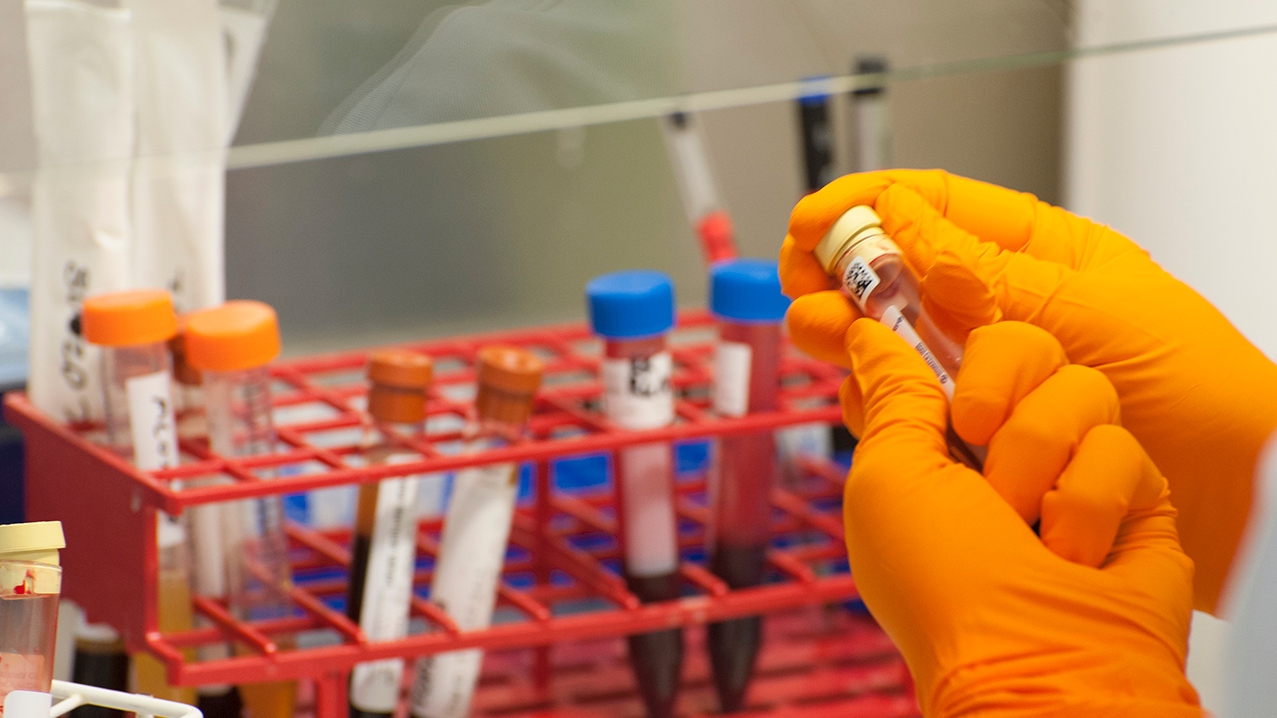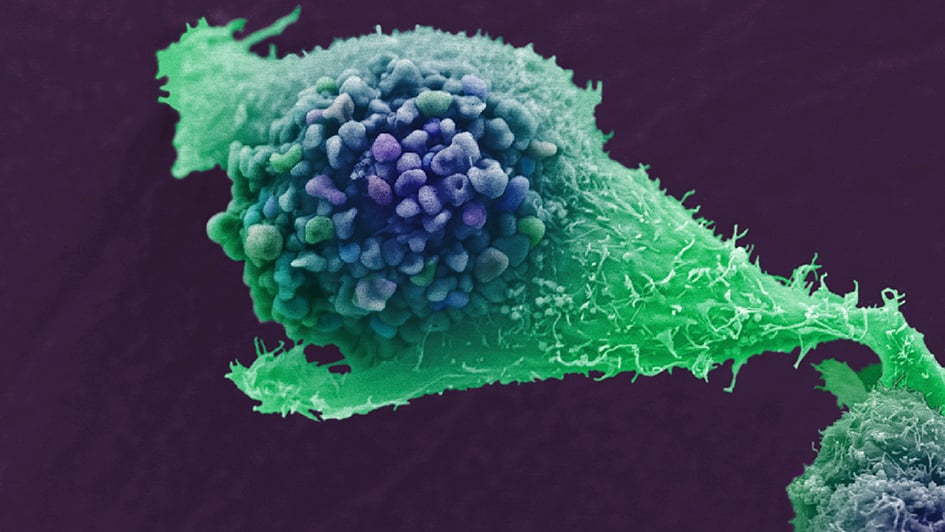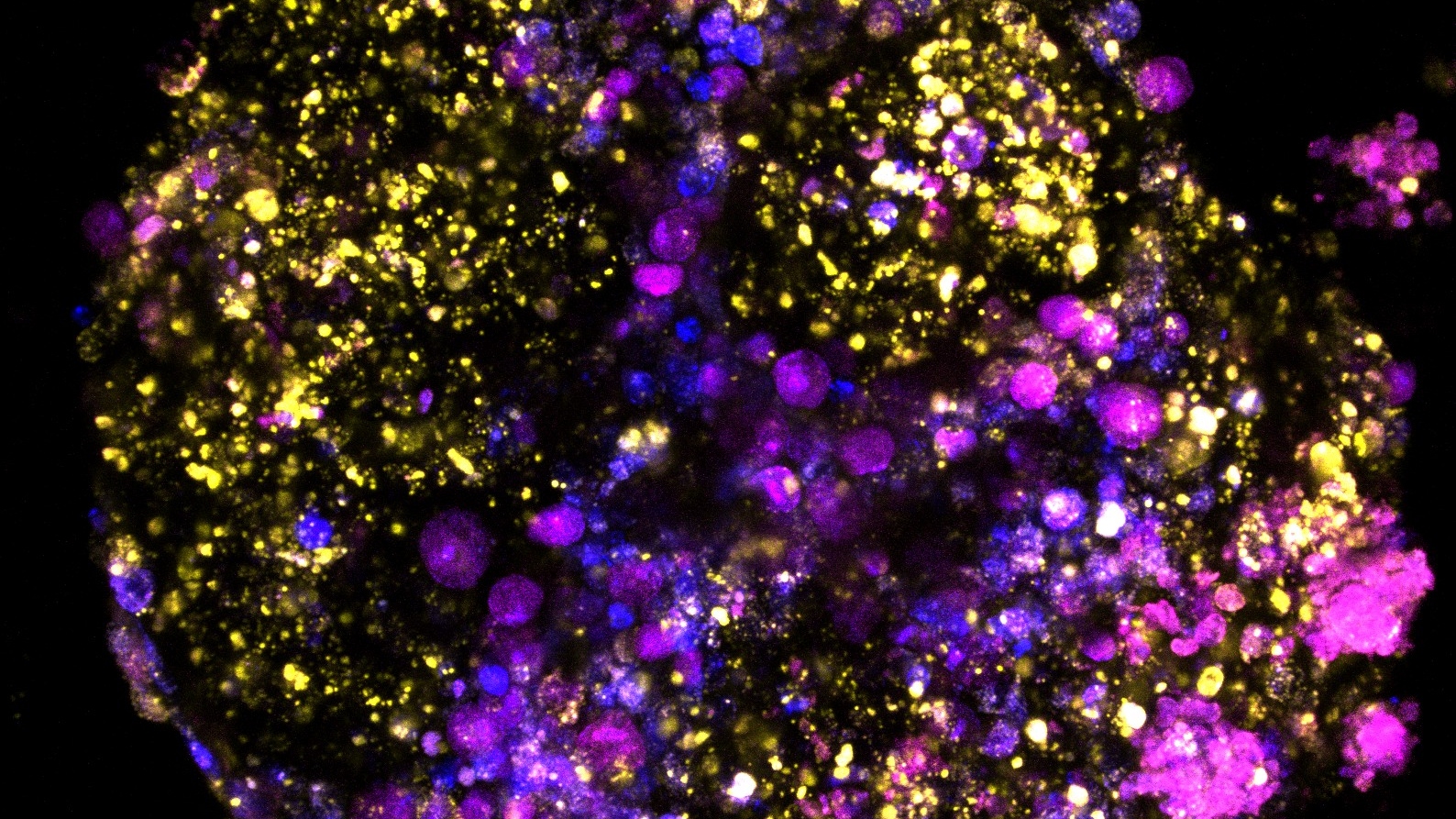News and features
Read the latest news and features about our world-leading research, discoveries, fundraising and philanthropy. If you want to keep updated on our news, you can follow us on social media or sign up for our Search newsletter.
If you’re a journalist and want to find out more, you can contact our media relations team.

New blood test matches breast cancer patients to the right treatment without a biopsy
A new type of blood test can accurately identify different types of breast cancer – meaning patients can be matched to the correct treatment without the need for a biopsy.

The ICR honoured for vital role in advancing research-driven care for children with brain tumours
The Royal Marsden Hospital, St George's Hospital and King's College Hospital with The Institute of Cancer Research, London, as the South London Paediatric Neuro-Oncology Network, has announced that it has been designated a Tessa Jowell Centre of Excellence for Children.

New AI models set to revolutionise medical imaging and transform cancer care
Two ground-breaking studies have demonstrated that combining artificial intelligence (AI) with state-of-the-art MRI imaging could revolutionise how clinicians detect, monitor and treat advanced prostate cancer.

ICR responds to announcement of prostate cancer screening for men with BRCA1 and BRCA2 gene mutations
Experts at The Institute of Cancer Research, London, have responded to the draft recommendation from the National Screening Committee (NSC) to implement a targeted prostate cancer screening programme for men with a confirmed BRCA1 and BRCA2 variant.

ICR awarded prestigious prize for radiotherapy research
The Institute of Cancer Research, London, has been awarded a Queen Elizabeth Prize for Higher and Further Education - the highest national honour in UK further and higher education for its pioneering radiotherapy research.
.jpg?sfvrsn=205a5de0_2)
First men invited to take part in the most ambitious prostate cancer trial in decades
Today, the first men have been invited to join the ambitious £42 million TRANSFORM screening trial, kicking off the biggest prostate cancer screening study in a generation.

New computational breakthrough helps uncover how water molecules influence cancer drug potency
In a major step forward for cancer drug discovery, researchers have demonstrated how computational simulations can unravel the complex role of water molecules in drug binding, potentially saving years of trial and error in the lab.
.jpg?sfvrsn=83f9c0d2_1)
Why men fare worse in acute myeloid leukaemia: new study rules out hormone signalling
New research has ruled out hormone signalling as the reason why men with acute myeloid leukaemia (AML) tend to have poorer outcomes than women, even when treated with the same intensive chemotherapy – a finding that helps refine future research and could influence clinical trial design.

Embracing mathematics is key to illuminating cancer cell evolution
A new review explains how turning to mathematics is helping researchers decode one of cancer’s most elusive traits: its ability to evolve and adapt.

New combination treatment could overcome immunotherapy resistance in difficult-to-treat cancers
A pioneering clinical trial has demonstrated for the first time that two existing treatments can be combined to potentially improve outcomes for sarcoma and melanoma patients with advanced tumours in their limbs.

Bowel cancer’s 'big bang' moment revealed
Like the astronomical explosion that kickstarted the universe, bowel cancer has a 'Big Bang' moment which determines how it will grow, according to new research from scientists at The Institute of Cancer Research, London.

ICR rated one of UK’s leading academic centres for industry collaboration and commercialisation
The Institute of Cancer Research has ranked among the top UK universities for research partnerships and commercialisation.
